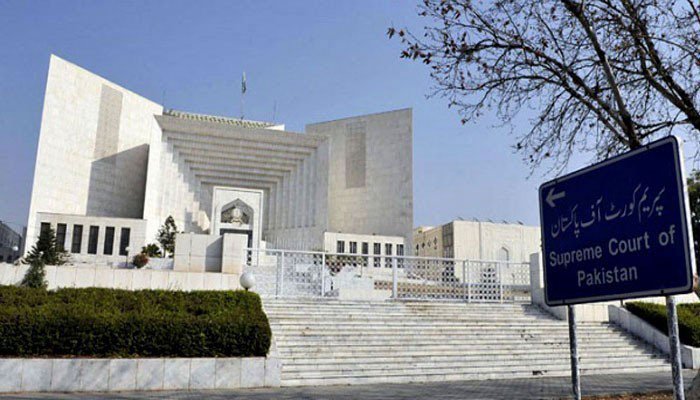Is 'ad-hocism' the solution?
Long-term problems of the Supreme Court cannot be resolved through 'ad-hocism'
August 12, 2021

A recent controversy began after the decision to elevate a junior, but at the same time highly-competent and diligent Sindh High Court (SHC) Judge Justice Muhammad Ali Mazhar, as a judge of the Supreme Court of Pakistan (SC) by the Judicial Commission of Pakistan (JCP).
The JCP, by majority, decided to ignore the senior most judges of the SHC including the Chief Justice of the SHC.
The departure from the seniority, and legitimate expectation rule, has visibly resulted in an anxiety among the members of the bar and ostensibly among the bench throughout the country.
The JCP's decisions are yet to see the light of day from the parliamentary committee. Even if it does, under the 19th amendment the nomination of the judge has to be sent to the prime minister by the committee, who will forward it to the president, who as per Article 177 is the appointing authority.
Hence, the two nominations - the other being the elevation of Chief Justice Jamal Khan Mandokhel of Balochistan High Court - against the permanent vacancies, are yet to be filled.
Amidst all this, a new controversy has taken birth.
It has been reported that a JCP session/meeting has been called on August 10 to consider the ad-hoc appointment of the SHC CJ to the office of a Supreme Court Judge.
This could, if it has not already, have far reaching effects ranging from legal to political to administrative to judicial.
It is also reported that the SHC CJ has on multiple occasions, and for very right reasons, refused to become an ad hoc judge.
Firstly as per the Article 182, a judge of the High Court will be appointed as an ad hoc by the CJP with the approval of the president, after consulting with JCP and getting consent of the CJ of the high court.
However, as per the ruling in the Al Jehad Trust v Federation of Pakistan case in 1996, the Supreme Court held that such exercise could only happen after one of two conditions are met, namely, for want of quorum of judges of the SC to hold or continue any sitting is not possible or when the number of strength of judges is to be increased temporarily.
But the upshot of the discussion was that if the permanent vacancies as mentioned in the Supreme Court Act 1997 are to be filled, then Article 182 could not come into play.
On the other hand, the preceding Article 181 expressly allows a high court judge to be appointed as acting judge.
Also, the constitution is silent with regard to the appointment of the chief justice of a high court as ad hoc judge of the SC.
The constitution further doesn’t address if a chief justice high court could be appointed as an ad hoc judge, and if yes then the question is who is the authority to seek the consent from?
Arguably, the deliberate silence of the constitution on such issues can be construed as proponent to the seniority rule. More importantly, it is a settled principle that what cannot be done directly cannot be achieved indirectly.
The chief justice of any high court, by virtue of his office, is different from the rest of the judges of the same high court. In fact, being a chief justice of the high court is itself an accomplishment that may also be recognized by the holder's elevation as a permanent or acting judge of SC.
Back in 2010-11, the extension of Justice Ramday as an ad hoc judge of the Supreme Court was met with resentment earlier from the executive i.e. the president. This resulted in a crisis of some proportion.
The SC went on to pass the resolution in favour of another extension of Justice Ramday as an ad hoc judge for SC. However, the judiciary had to eventually withdraw it in the wake of strong protests by the then bar councils and associations.
Furthermore, in the past the legislature had shown the intention to bring constitutional amendment by laying a bill in the upper house to omit Article 182 from the constitution, for the reasons that such appointments encourage nepotism and favoritism which have negative impact on the dispensation of justice as well as the independence of judiciary. This, however, has not moved further.
The urgency to call for an appointment of an ad hoc judge, amidst when the process of permanent vacancies has not been finalized, and that too when a Supreme Court judge hailing from Karachi is to reach his superannuation, creates anxiety among members of bar.
In light of the imminent vacancy, the exercise should be for the elevation of a high court judge who is qualified for appointment.
More importantly, the long-term problems of the Supreme Court cannot be resolved through “ad-hocism".
The polarity of thought within the judiciary, discontent among the bar members, the legal and administrative issues of the bench will only exacerbate the problems if the ad hoc issue is not put to an end.
The writer is an advocate of the high court. He is based in Karachi.











